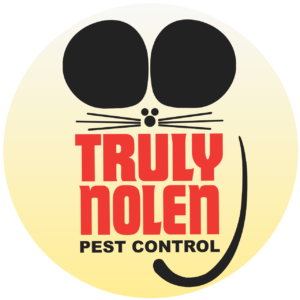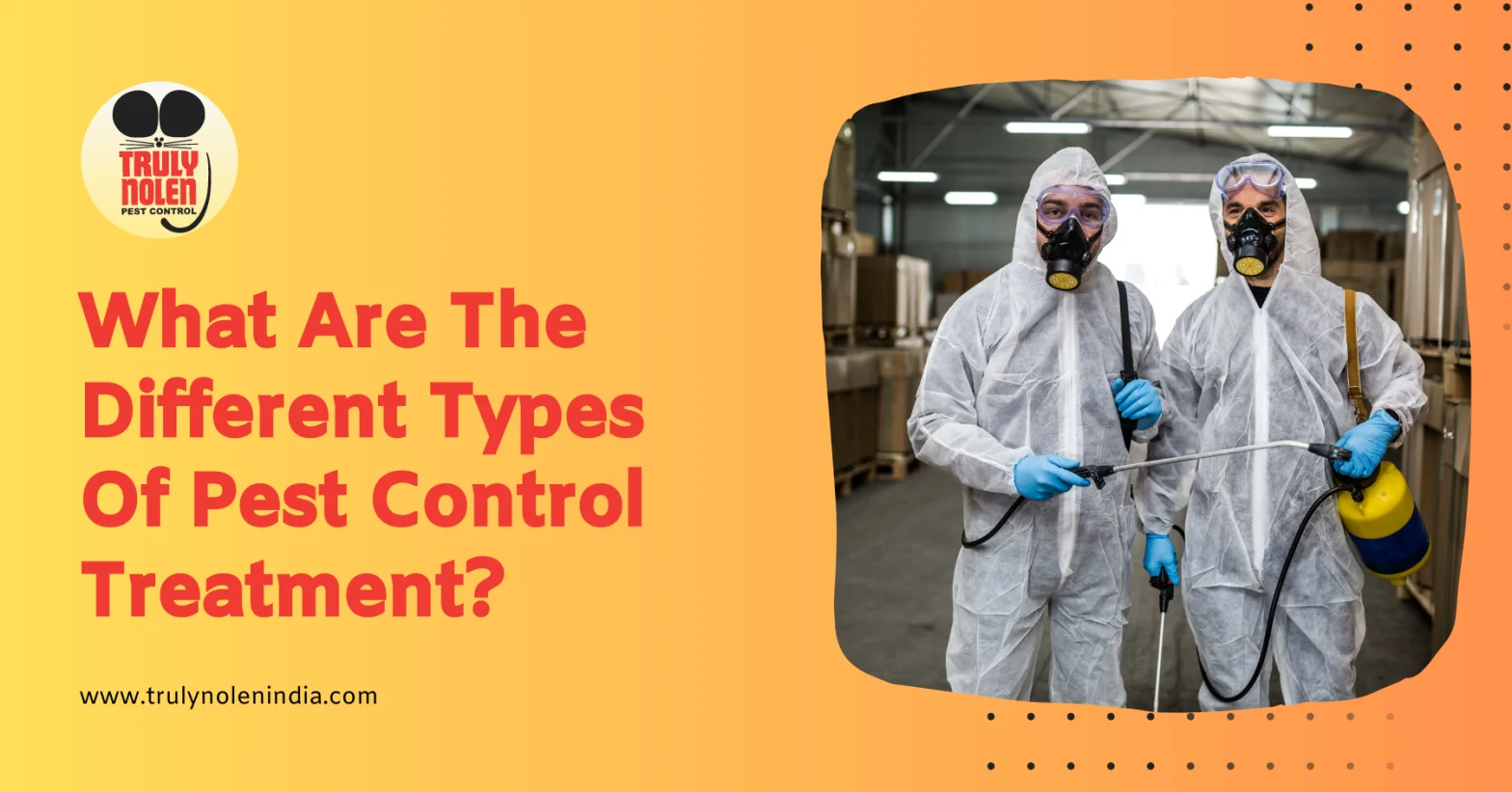Pest infestations can turn the comfort of our living spaces into a nightmare. Whether it’s finding ants marching in a never-ending line across your kitchen counter, spotting cockroaches scurrying under appliances, or waking up to itchy bites from bed bugs, pests can quickly become a cause for concern. Understanding pest infestations is essential for effective pest management, prevention, and safeguarding our health and property.
In this blog, we’ll explore a wide range of pest control methods to help you address these issues and regain control over your living spaces.
Common Culprits Of Pest Infestations

Before we delve into the world of pest control, let’s familiarize ourselves with some of the most common pests that can infest our living spaces and surroundings:
- Cockroaches: These resilient insects are notorious for invading homes and businesses, thriving in warm and humid environments while posing health risks due to the allergens they carry.
- Ants: Ant infestations are prevalent in households, particularly in kitchens and pantries, where they seek out food sources and establish extensive colonies.
- Bed Bugs: These nocturnal bugs are a nightmare for many, causing discomfort and sleepless nights with their bites.
- Termites: Often referred to as silent destroyers, termites feed on cellulose-based materials, such as wood, and can cause significant structural damage if left unchecked.
- Mosquitoes: These blood-feeding insects cause itchy bites and transmit dangerous diseases like malaria, dengue fever, and Zika virus.
What Are The Different Types Of Pest Control Treatment?
Here are the various types of pest control treatment:
1. Integrated Pest Management (IPM) Approach

IPM is not just a single strategy but a dynamic and interactive process that empowers us to strike a perfect balance between effective pest control and ecological responsibility.
Unlike traditional pest control methods that rely heavily on chemical pesticides, IPM emphasizes a more holistic and ecologically sensitive approach.
Principles of IPM: A Multi-Faceted Strategy
The foundation of IPM lies in its principles, which guide the decision-making process to achieve effective pest management:
- Prevention
Prevention is key in pest management. IPM suggests proactive steps like proper sanitation, sealing entryways, and using pest-resistant plants.
- Monitoring and Identification
Regular monitoring is crucial in IPM for effective, targeted pest control by understanding specific pest species, their life cycles, and their behavior.
- Thresholds
IPM recognizes that not all pests need to be eradicated completely. Instead, it sets “action thresholds,” which are predetermined pest population levels at which intervention is necessary to prevent economic or health damage.
- Cultural Control
Cultural practices that create an unfavorable environment for pests are a fundamental aspect of IPM. These practices may include crop rotation, proper irrigation, and adjusting planting times to disrupt pest life cycles.
- Biological Control
Utilizing natural enemies of pests is an essential component of IPM. By introducing predators, parasitoids, and beneficial insects, pests can be kept in check without resorting to chemical pesticides.
- Mechanical and Physical Control
Mechanical and physical control methods involve the use of barriers, traps, and other physical means to prevent pests from accessing a target area or capturing them outright.
- Chemical Control (as a last resort)
While IPM promotes the use of non-chemical methods, it recognizes that in some situations, chemical pesticides may be necessary. However, their use should be limited and targeted to minimize environmental impact and preserve beneficial organisms.
Benefits and Limitations: Striking a Balance
IPM offers a myriad of benefits, making it an attractive choice for pest management:
- Reduced Environmental Impact
By relying on natural pest control methods and using chemical pesticides sparingly, IPM reduces the risk of harm to non-target species, beneficial insects, and the overall ecosystem.
- Long-Term Effectiveness
By addressing the root causes of pest problems and focusing on prevention, IPM provides more sustainable, long-term solutions compared to solely relying on chemical pesticides.
- Cost-Effectiveness
While the initial implementation of IPM may require more effort, resources, and expertise, it can lead to cost savings over time by minimizing the need for frequent pesticide applications.
- Less Pesticide Resistance
The judicious use of pesticides in IPM reduces the likelihood of pests developing resistance, ensuring that chemical treatments remain effective over time.
However, IPM does have its limitations:
- Requires Expertise
Implementing IPM effectively often requires specialized knowledge of pest biology, behavior, and control methods, which may be challenging for some individuals or organizations.
- Time-Consuming
Monitoring and implementing multiple pest control strategies can be time-consuming, especially in large-scale agricultural settings.
- Not a One-Size-Fits-All Solution
IPM must be tailored to specific pests, environments, and circumstances, making it less straightforward than traditional pest control methods in some cases.
Remember, IPM is not a one-time solution but a dynamic process that evolves as we learn and adapt to the challenges of our changing world. As you continue your quest for sustainable pest control, always remember the core principles of prevention, identification, and smart intervention.
Other Pest Control Treatments

Apart from Integrated Pest Management, there are are some other pest control treatments, like:
I. Physical Pest Control Measures
Physical pest control methods involve the use of barriers, traps, and deterrents to prevent pests from accessing desired areas or capturing them without using chemicals.
- Traps and Baits
Traps and baits are effective tools for capturing pests like rodents and insects. Mousetraps, flypaper, and pheromone traps are some examples of traps used to monitor and control pests.
- Exclusion Techniques
Exclusion techniques involve sealing off entry points and employing physical barriers to prevent pests from entering buildings or gardens. Properly installed screens on windows and doors, weather stripping, and caulk application can help keep pests out.
II. Organic Pest Control: Eco-Friendly Alternatives
For those seeking eco-friendly and non-toxic alternatives to chemical pest control, organic methods provide effective solutions.
- Essential Oils and Plant-Based Extracts
Essential oils derived from plants like peppermint, lavender, and citrus have insect-repelling properties and can be used as natural insecticides. Mixing these oils with water and spraying them in affected areas can deter pests from invading your living spaces.
- Diatomaceous Earth
Diatomaceous earth is a fine powder made from fossilized remains of diatoms. It acts as a desiccant and abrasive, dehydrating, and physically damaging insects with exoskeletons. Food-grade diatomaceous earth is safe to use around humans and pets.
- Neem Oil
Neem oil is extracted from the seeds of the neem tree and has insecticidal properties. It disrupts the hormonal systems of insects, interfering with their feeding, breeding, and development.
III. Biological Pest Control Methods
Biological pest control uses ecological relationships to decrease pests. It introduces pests’ natural enemies, like predators (e.g., ladybugs, praying mantises) and parasitoids, or utilizes specific pest-targeting microorganisms like bacteria, fungi, and viruses.
IV. Chemical Pest Control Methods
Chemical pest control methods have been widely used for decades due to their effectiveness in quickly controlling pest infestations. However, using these methods responsibly and judiciously is essential to minimize potential risks to humans, pets, and the environment. These include the use of insecticides, rodenticides, and termiticides.
Safety Tip: Wear protective gear and follow guidelines for effective, safe pest control product usage.
V. Preventive Pest Control Methods
Prevention is a critical aspect of effective pest control. By implementing preventive measures, you can significantly reduce the likelihood of pest infestations.
- Proper Sanitation and Hygiene
Maintaining cleanliness in and around your living spaces is one of the most fundamental preventive measures against pests. Regularly clean surfaces, dispose of trash properly and store food in sealed containers.
- Landscaping and Garden Maintenance
Proper landscaping and garden maintenance can discourage pests from taking up residence. Regularly trim vegetation, remove debris, and keep garden beds free of weeds to create an unattractive environment for pests.
How To Choose A Reputable Pest Control Company?

Let’s explore the factors to consider when choosing a reputable pest control company and the differences between DIY pest control and professional services.
- Check for Licensing and Certification
Ensure that the pest control company holds the necessary licenses and certifications required by local and state authorities. These credentials demonstrate that they have met the standards set for professional pest management.
- Experience and Reputation
Look for companies with a proven track record of successfully handling pest infestations. Check online reviews, testimonials, and ask for referrals from friends or family who have used their services.
- Expertise in Handling Specific Pests
Different pests require specific treatments. Inquire about the company’s experience in dealing with the particular pest infesting your property.
- Eco-Friendly Practices
If you prioritize environmentally friendly solutions, inquire about the company’s approach to eco-friendly pest control methods and their commitment to minimizing environmental impact.
- Inspection and Customized Treatment Plans
A reputable company will thoroughly inspect your property to assess the extent of the infestation. They should then provide a customized treatment plan tailored to your specific needs.
- Transparent Pricing
Request a detailed quote that outlines the services to be provided and the associated costs. Be wary of companies that provide vague pricing or pressure you into immediate decisions.
- Guarantees and Warranties
Inquire about any guarantees or warranties offered by the company. A reliable pest control provider stands behind their work and may offer follow-up treatments if necessary.
- Safety Precautions
Ensure that the company follows strict safety protocols to protect your health, the health of your family, and any pets in the vicinity.
DIY Vs Professional Pest Control
Deciding between DIY pest control and professional services depends on the severity of the infestation, your level of expertise, and your comfort with handling pesticides.
While DIY methods may be sufficient for minor pest problems, professional services offer a more comprehensive and targeted approach for significant infestations. Remember, no single pest control method fits all situations.
Here are the key differences between DIY pest control and hiring professional services:

DIY methods may suffice for minor pest issues, but for extensive or persistent infestations, hiring a professional company like Truly Pest Solution is advisable.
Truly Pest Solution: Your Shield Against Pests!

Ultimately, the choice between professional pest control and DIY methods depends on the severity of the infestation, your level of expertise, and your preference for long-term results versus quick fixes. Regardless of your approach, the key is to promptly address pest issues and protect your home and well-being from unwanted invaders.
Hiring professional pest control services can be a game-changer when dealing with persistent or extensive pest infestations. Truly Pest Solution is the top-notch provider you can rely on without breaking the bank.
Our customized solutions are designed to cater precisely to your pest control requirements. We recognize the uniqueness of each situation, and our mission is to deliver personalized remedies exclusively for you. With our hassle-free, eco-friendly, and budget-friendly pest control methods, you can be rest assured that your needs are met with utmost care and consideration.
We’re ready to assist you with all your pest control needs!


Leave a Reply